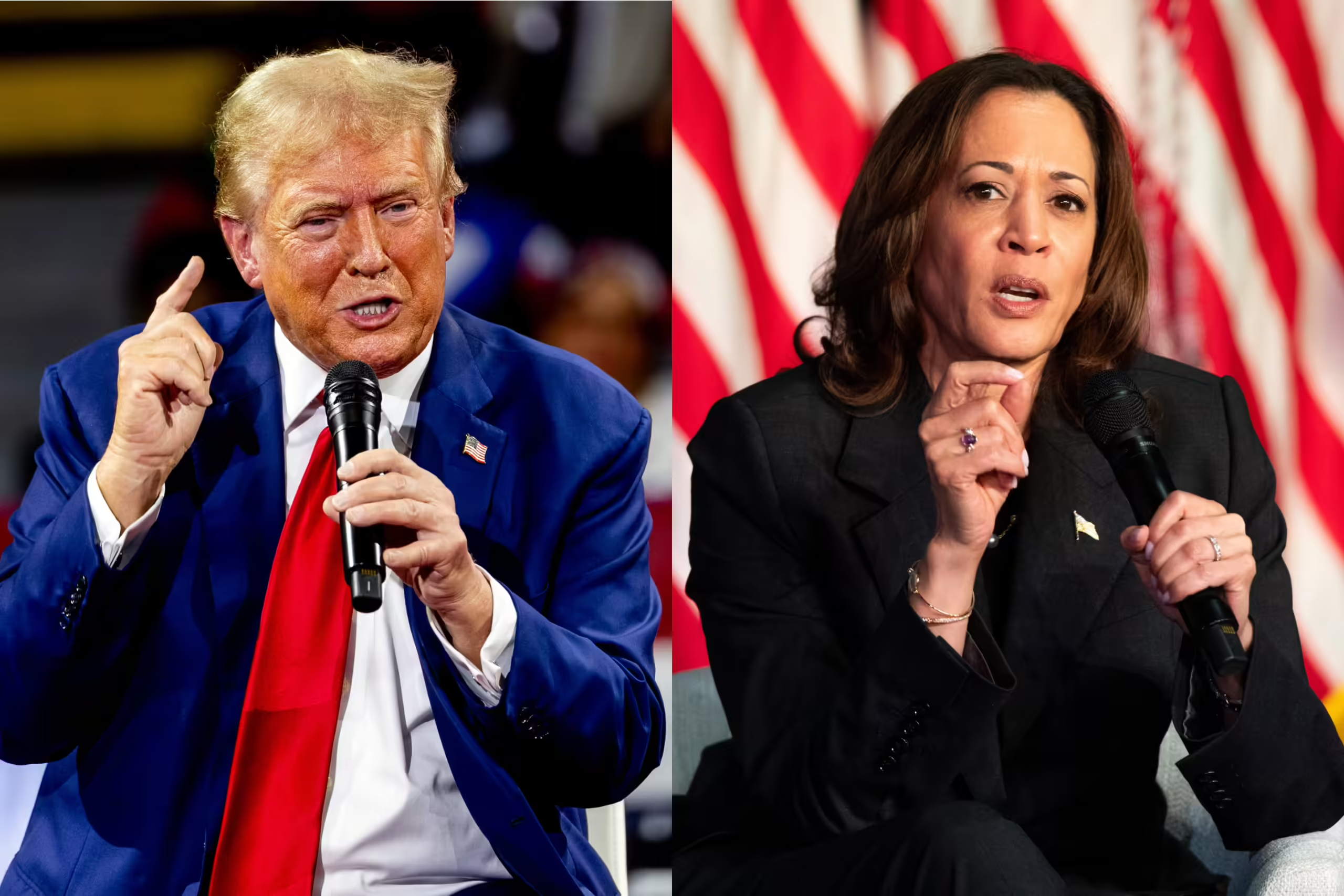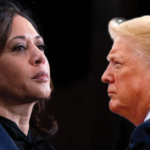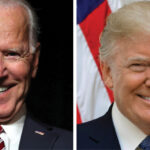Voters in the US go to the polls tomorrow, November 5, to elect their next president and the big question now is: “Will America get its first woman president or a second Donald Trump term?”
Vice President Kamala Harris has had a small lead over Trump in the national polling averages since she entered the race at the end of July when President Joe Biden ended his campaign and endorsed her. She remains 48 per cent ahead of Trump’s 47 per cent as of October 31, 2024.
Harris experienced a surge in her polling numbers during the initial weeks of her campaign, achieving a lead of almost four percentage points by late August. The polls remained relatively steady throughout September and early October but have become more competitive recently.
While national polls are a useful guide to know how popular a candidate is, they are not the best way to predict the election result because of the use of an electoral college system in the US.
The Electoral College is a unique feature of the US presidential election. Each state is allocated a certain number of electors based on its representation in Congress (the total number of senators and representatives). There are 538 electors, and a candidate needs a majority of 270 electoral votes to win the presidency.
When voters cast their ballots on Election Day, they are voting for a slate of electors pledged to their preferred candidate. The winning slate of electors then meets in their respective state capitals in December to cast their official votes for president and vice president.
There are 50 states in the US but because most of them nearly always vote for the same party, in reality, there are just a handful where both candidates stand a chance of winning. These are the places where the election will be won and lost and are known as battleground states or swing states.
This is somehow similar to Nigeria where it is assumed that if a presidential candidate has a comfortable majority in Lagos, Rivers, Kano, Kaduna and Katsina, the candidate will win because of the larger number of votes from those states.
However, once a candidate has the highest votes and wins one-third of the votes in 24 states, they can be declared the president. It is different in the US even though Nigeria borrowed their system.
In the 2016 presidential election, Donald Trump won the presidency through the Electoral College, despite losing the popular vote to Hillary Clinton.
On Election Day, voters in each state cast their ballots for president. Most states use a winner-takes-all system, where the candidate receiving the majority of votes in that state gets all its electoral votes. Clinton received about 65.8 million votes (48.2%) compared to Trump’s 62.9 million votes (46.1%). However, Trump secured key battleground states such as Pennsylvania, Wisconsin, and Michigan, which tipped the balance in his favour.
Trump received 304 electoral votes, while Clinton received 227. Despite losing the popular vote, Trump’s victories in crucial states allowed him to amass enough electoral votes to win the presidency.
The Electoral College is a long-standing American political tradition rooted in the constitution. Some argue that it respects the Founding Fathers’ intentions and maintains the government’s federal structure.
Tracing the history of the US Electoral College system, Mallam Isyaku Dikko – a pioneer Editor of Weekly Trust Newspaper, said it is a shock absorber used to maintain stability in the US democratic space.
“The Electoral College is designed to regulate American society beyond the sentiment and the spur of the moment by the electorates. Somebody said fools are so many in the world that if they can unite, they can also vote to produce a president from among them.
“It is just like when we were in primary school, they will say if you miss the ball don’t miss the leg. When they miss a popular election, they use the Electoral College to correct it.
“For example, they didn’t want Hillary Clinton to be president. But then because of sentiment, she won. What is the plan B, the possible option of stopping her? The Electoral College and they campaigned seriously among the delegates to make sure that she was voted out.
“In the system, in any state where a presidential candidate leads even if it’s with one vote, he or she has the right to nominate all the delegates from the state. This means that the electors he nominated before the election will represent that state when it comes to voting by the members of the Electoral College.
“There are three important issues about the Electoral College that people do not pay attention to – the objectives of the Electoral College. Though not stated anywhere, the objective is to make sure that minority groups especially blacks, no matter their population, may not have the opportunity to determine who becomes president in the United States.
“The black community for example may have about 20 million votes. They may unite to vote for just one candidate but they may not be able to make that candidate win even with their votes.
“The second point is that America is built on trust and doesn’t want somebody to come from nowhere out of oratory or out of connection, he becomes the president of America without commitment to the values of American society. It is easier to mobilise the delegates and win their support to get a particular candidate as president based on American values and interests.
“The third one is business interest. The business community is interested in the Electoral College because they will not want somebody who will come and refuse to be controlled or manipulated,” said the retired Permanent Secretary in Katsina State who is conversant with the politics in the US,” he said.
The Electoral College system in the US presidential election has its fair share of supporters and critics but Mallam Dikko posited that if the Electoral College was not serving the interest of some people, it would have been abolished a long time ago.
Samson Itodo, founder of Yiaga Africa, an NGO promoting democracy in Africa, said the Electoral College system had made some states a battleground.
“The campaign is concentrated in the battle states because their votes are special,” Itodo said.
The swing states have around 90 delegates and the election will be determined by the ability of the candidates to win those states.
Itodo who is currently in the US to monitor the election said many Americans feel it is unjust and against the popular choice. “Americans feel the small states are being undermined. They believe that the Electoral College should be scrapped and popular votes should count.
“Since democracy is the government of the people, by the people and for the people, the people should determine who becomes their president and not a few electors.
“Just as the court has cleared the air on the status of the FCT in determining who becomes the president of Nigeria, no state should have a special status. There should not be special states; all states should be important,” he said.
With the polls showing a very close contest between the candidates and some notable Republicans publicly declaring their support for Harris – including Arnold Schwarzenegger, a former Republican governor of California, analysts have mentioned the possibility of some of the Republican delegates opting to vote for Harris in the Electoral College.
However, this depends on the number of the differences between the two candidates. The expectation is that the members of the Electoral College nominated by a party will vote for the presidential candidate of their party. Mallam Dikko shares this same sentiment but was quick to point out that there have been a few occasions where delegates cross-carpeted.
He explained that: “Most of the party members are loyal to their party and candidates unlike what we have in Nigeria. In Nigeria, you can keep your money and lose the general election, then you bribe the delegates to win their votes at the Electoral College.
“In their own situation, they have an institutionalised system. Hence, after the general election, you can easily predict who the next president will be.
“If Trump leads with over 20 or 30 delegates, it will be difficult for Harris to win that huge number to her side. However, things are changing and we could see surprises.”

 Join Daily Trust WhatsApp Community For Quick Access To News and Happenings Around You.
Join Daily Trust WhatsApp Community For Quick Access To News and Happenings Around You.


